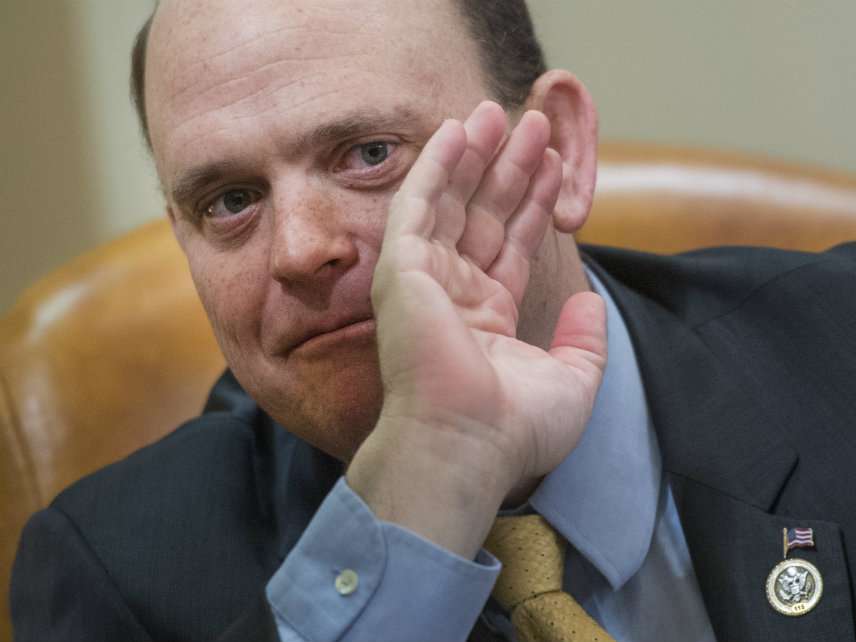GOP Congressman Bucks Party on Dems' House Rule Changes
Rep. Tom Reed says he was threatened with "consequences" as a result.

A Republican member of Congress says he'll support a series of Democrat-proposed changes for the new House of Representatives.
As NPR explains, it's customary for the majority party in the House to adopt a set of rules every two years. With Democrats having seized control of the House in the November midterms, some alterations were inevitable. Among the notable changes in the new rules is a provision allowing the speaker—likely Rep. Nancy Pelosi (D–Calif.)—to "intervene" in Texas vs. United States, a federal case involving the constitutionality of the Affordable Care Act. Another rule prohibits measures that would increase the budget deficit for the current year, while a third would create a Select Committee on the Climate Crisis to investigate climate change.
Rep. Tom Reed (R–N.Y.) is the Republican co-chair of the Problem Solvers Caucus, a bipartisan group of lawmakers that attempts to reach compromises (with mixed results). In late November, a press release from Reed's office touted the "commonsense rule reforms" that House Democratic leaders and Democratic members of the Problem Solvers Caucus had agreed on. And yesterday, Reed officially announced his support for the rules. "The reforms the Problem Solvers Caucus were able to get included in this rules package go a long way to empower the people we represent, enable rank-and-file Members to govern and make it easier for bipartisan bills to pass," Reed said in a statement, adding that "we are proud to walk the talk of reaching across the aisle to best serve the people who sent us here."
Reed does not support the full rules package. But the reforms he favors make it easier for bipartisan legislation to get to the House floor for a vote, while also making it more difficult for ideological factions in either party to affect the legislative process.
This will be the first time since 2001 that a legislator votes with the other party on a set of House rule changes. Politico reports that other Republican members of the Problem Solvers Caucus will vote with Democrats as well, though none have said so publicly.
It remains to be seen whether Reed will face repercussions from Republican leaders in the House. He suggested that he's been threatened with "consequences," though he wouldn't elaborate. "I won't speak to that right now, because hopefully there is reconsideration of it," he tells The Washington Post. "But it is what it is, and I recognize that some people want to continue to play us-versus-them politics, but I came to Washington to change it, and I'm willing to put my voting card where my mouth is."
Though there are aspects of the rule changes that he doesn't like, Reed thinks supporting the package as a whole seems like "a show of good faith," his spokesperson, Will Reinert, tells Politico.
"There are some things that deal with litigation matters under the ACA (Affordable Care Act) and other issues that are potentially problematic from a conservative perspective," Reed said yesterday, according to WSKG. "But overall, I believe the reforms are a net positive for the American people. Regardless of the consequences that this will bring to me, I will be voting yes on that package tomorrow."
